Key Findings at a Glance
REAL-WORLD evidence indicates that hereditary angioedema with normal C1 inhibitor is frequently hormone sensitive. In HAE-FXII, withdrawal of combined oral contraceptives, often with progestins, is associated with…
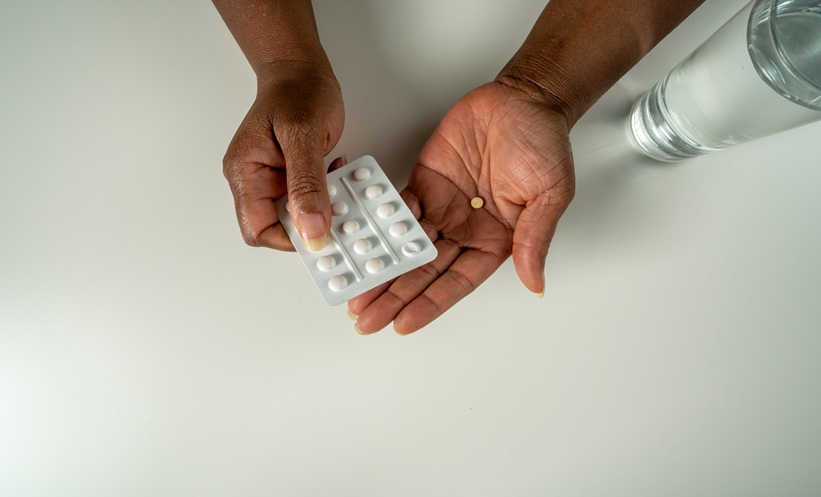
REAL-WORLD evidence indicates that hereditary angioedema with normal C1 inhibitor is frequently hormone sensitive. In HAE-FXII, withdrawal of combined oral contraceptives, often with progestins, is associated with…
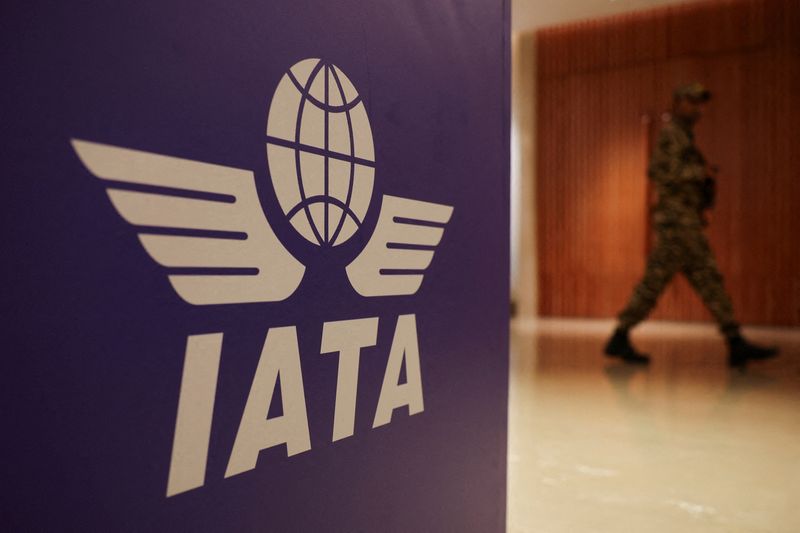
By Tim Hepher and Joanna Plucinska
PARIS/LONDON (Reuters) -Global airlines face more than $11 billion in extra costs from supply chain disruption this year, a leading industry group said on Monday, in a report likely to rekindle debate over competition in the $250-billion aerospace industry.
The study by the International Air Transport Association, produced with consultants Oliver Wyman, marks the first attempt to quantify the impact of a five-year supply chain crisis that has driven up fares and led to flight cancellations.
IATA Director General Willie Walsh said he was surprised by the extent of the findings and told Reuters there may be grounds to revisit whether airlines are being subjected to anti-competitive practices by suppliers, after dropping a previous complaint in 2018.
“Even if you halve the number, it’s still a massive drag on the industry,” Walsh said in an interview.
REPORT DETAILS COST OF BOTTLENECKS
Researchers found the largest impact stems from $4.2 billion in extra fuel as airlines keep older planes in service.
Additional maintenance is expected to cost $3.1 billion, while leasing engines to replace those stuck in queues for maintenance adds another $2.6 billion.
Holding more spare parts to cushion delays is projected to cost airlines $1.4 billion.
Planemakers and their suppliers have waded through a mire of setbacks, from shortages of labour, materials and parts to mounting delays at repair shops, particularly for engines.
There is also a growing tug of war with the defence industry for capacity as governments increase military spending.
“There’s now going to be continuing competition for the limited supply that is there,” Walsh said, adding that supply chains would be an issue for the rest of the decade.
He questioned the influence suppliers exert over parts pricing and called for “additional competition in the aftermarket, which clearly has seen significant consolidation.”
PROFIT GAP
IATA has previously called for greater competition in maintenance, including improved access to independent parts known as PMA.
In 2016, it filed a complaint with the European Union against CFM International but withdrew it two years later after the engine maker agreed to maintain an open and competitive market.
A similar agreement was reached with Rolls-Royce in 2021.
Walsh said there were no plans to launch any new challenge, but did not rule it out.
“We have been evaluating it, but we’d have to do a lot more work,” he said, noting that airlines have confidential agreements, so digging deeper involves teams of lawyers.
ESC Press Office
Tel: +33 6 61 40 18 84
Email: press@escardio.org
Follow us on European Society of Cardiology News on LinkedIn
About the European Society of Cardiology
The European Society of Cardiology brings…
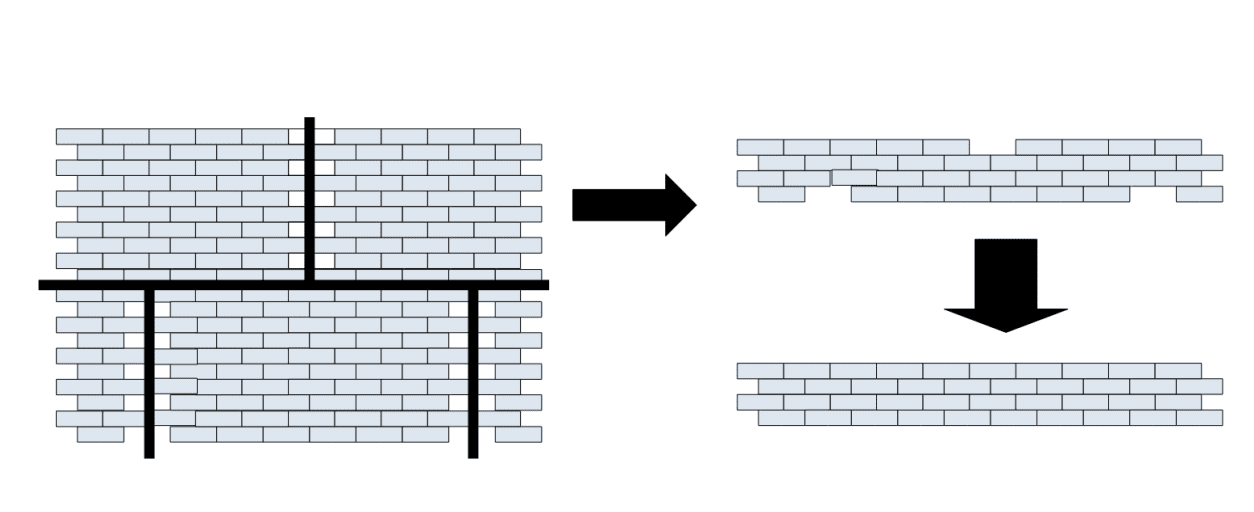
The pursuit of understanding how quickly complex quantum systems settle into predictable randomness drives much current research in quantum information science. Nicholas Laracuente from the University of Chicago, along with colleagues, now…

Woody Allen has paid lengthy tribute to Diane Keaton after her death aged 79 on Saturday.
In an essay published by The Free Press, Allen, 89, wrote about their time together from first meeting in 1969 during rehearsals for his play Play It Again,…

British drivers Timo Jungling and Noah Wolfe delivered outstanding performances at the weekend’s FIA World Karting Championship, both standing on the podium in the KZ2 World Cup race.
Both drivers began their motorsport journeys through…

Wolves Esports PUBG Mobile team has been crowned PUBG Mobile Super League (PMSL) Americas champions.
Live in Brazil the team took on the best teams Americas had to offer and came out on top with an extremely consistent performance where they…
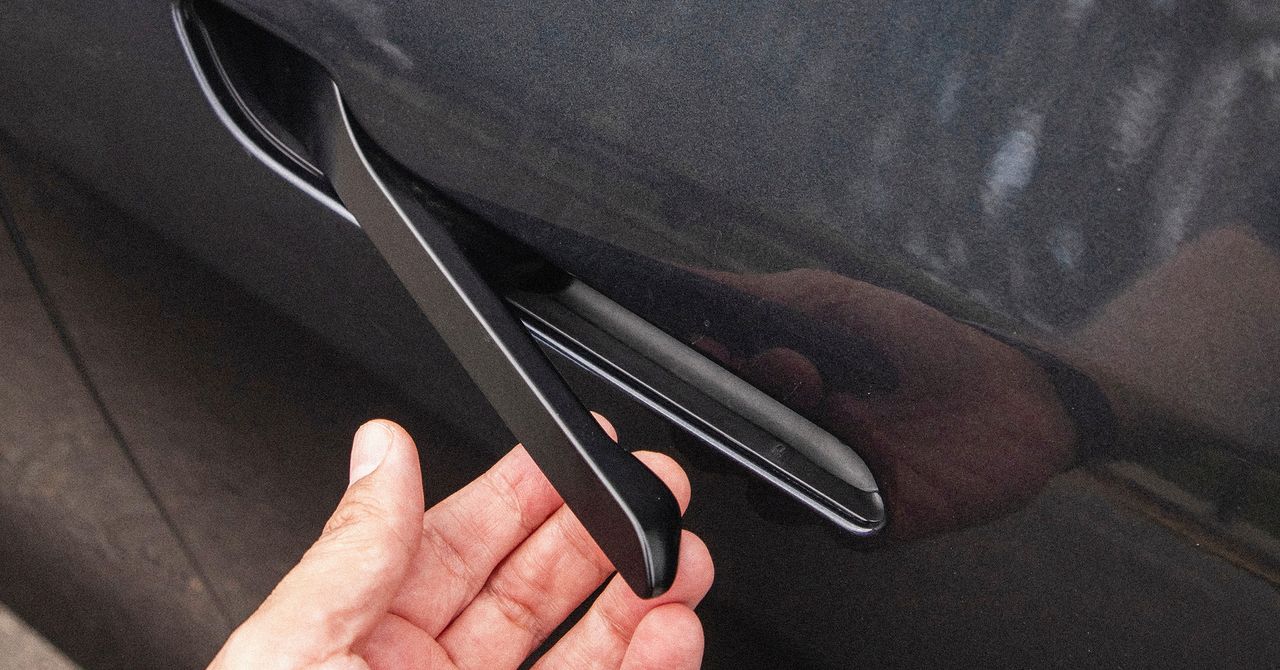
The issues could cascade beyond the design. The auto manufacturing industry operates on strict production schedules. Though it builds in time to validate and test whatever new features come in each new model, the sudden intro of a design change late in the process could throw off the delicate timetable.
In this decade, China’s auto industry has shocked the world by racing ahead of legacy automakers, quickly developing, with government support, ever newer, cheaper, and more technologically advanced vehicles on shorter production schedules. The country is the world’s largest automotive market; it’s expected to manufacture a full third of the world’s cars by 2030. Still, quickly complying with new design regulations won’t be easy for domestic Chinese automakers either, says Broglin-Peterson. “Mechncial release requires a mechanical assembly,” she says. “It’s not just, you write some code.”
Automaker’s door handle trouble likely won’t end in China. The new rules could lead to cascading responses from other global regulators. It’s a now-familiar pattern: China, once a place with lax protections, has forged ahead of the rest of the world in setting guidelines for electric vehicle battery safety and recycling, and autonomous vehicle tech. “This is a classic example of China setting the guardrails early: protecting consumers while quietly shaping global design standards,” Bill Russo, the CEO of Automobility, a Shanghai-based advisory firm, wrote in an email.
For many years, says Raphael Zammit, the chair of the transportation design department at the College for Creative Studies in Detroit, flush electronic door handles were the stuff of futuristic concept cars. “The fact that Elon Musk and Tesla put it into production was, frankly, pretty amazing,” he says. Their rise was linked with the increasing popularity of electric vehicles; tucking door handles into the doors of cars was meant to reduce their drag coefficient, leading to increased battery efficiency. Or so the theory went: Back-of-the-envelope math suggests the tweak maybe adds a mile of range. Maybe. Either way, the handles became a “demarcation of luxury,” Zammit says.
Indeed, electronic door handles can be found on many luxury vehicles, including some made by Volkswagen, General Motors, Ford, and Mercedes-Benz. Jake Fisher, the senior director of the Consumer Reports’ Auto Test Center, tested several of those vehicles’ electronic handles. While all had emergency mechanical releases, as the Chinese regulations mandate, some were in places that could be difficult to find in an emergency—on the floor, in shadow, or, as in the rear seats of the 2021 Model Y under investigation by NHTSA, under a slot at the bottom of the rear door pocket. The best emergency mechanical releases, Consumer Reports found, were those that simply needed to be pulled a bit harder than usual to open, an intuitive reaction in an emergency.
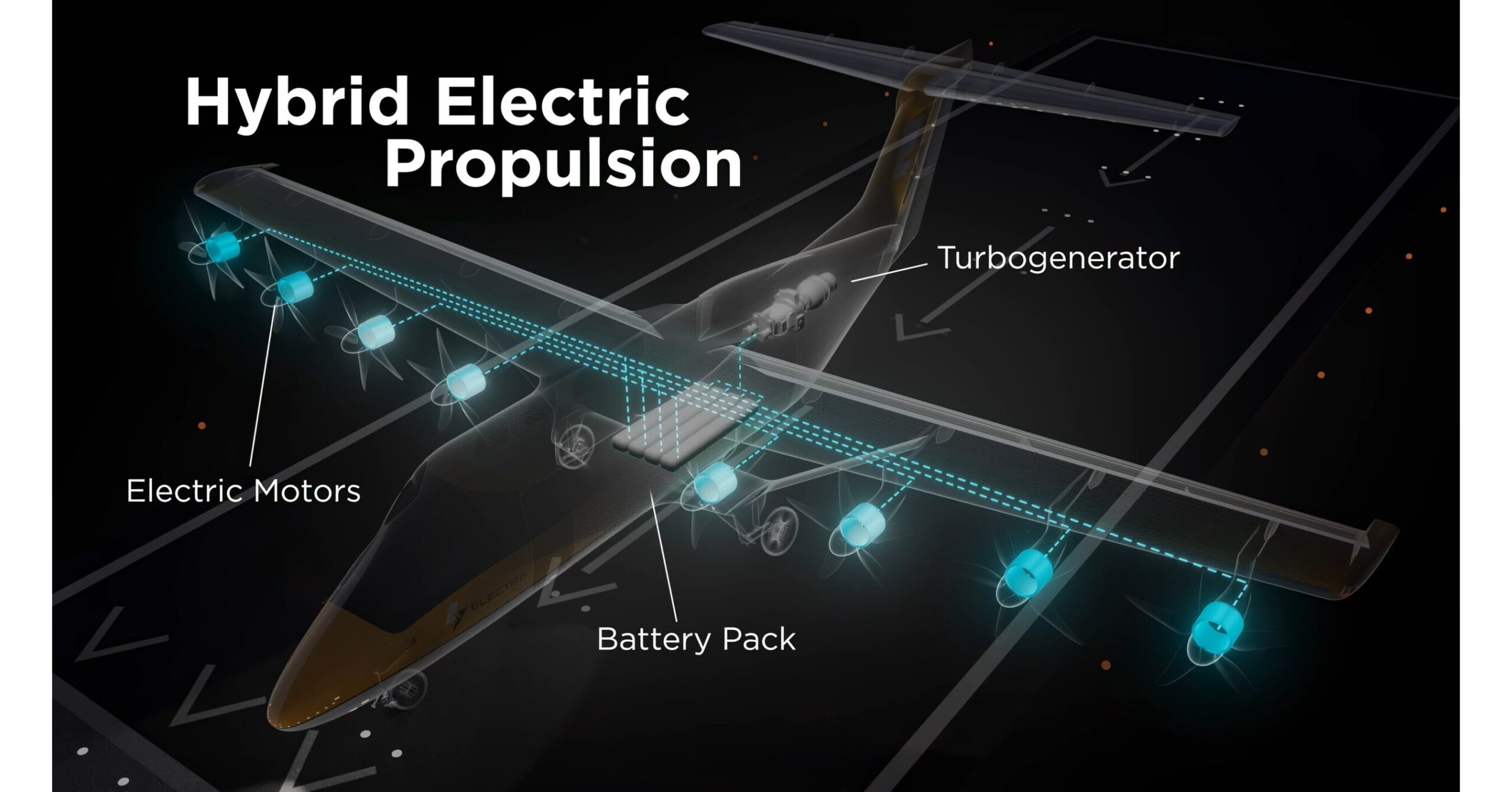
Evolito will provide Electra with high-performance EPUs that integrate lightweight motors, high-integrity motor controllers, and advanced thermal controls. Engineered for aerospace-grade reliability and efficiency, these EPUs drive the eight propellers along the edge of the EL9’s wing. This distributed electric propulsion system enables the EL9’s ultra-high lift, delivering low airspeeds and precision landings.
“Our production contract with Evolito is a significant step forward for our vision for Direct Aviation—safe, quiet, and affordable air mobility that connects communities in ways never before possible,” said Marc Allen, CEO of Electra. “Evolito’s lightweight, durable, and cost-effective design will provide exceptional long-term value for operators through low maintenance, long life, and proven reliability.”
“We are thrilled to partner with Electra on the EL9, a game-changing aircraft that aligns perfectly with our mission to accelerate the transition to sustainable aviation,” said Dr. Chris Harris, CEO and Co-founder of Evolito. “Our engine technology is designed for type-certification and scalable production, making it ideally suited to support Electra’s vision for clean, accessible, and efficient regional air travel.”
“Evolito’s EPUs deliver exceptional performance and reliability on a technology chassis with a proven heritage,” noted JP Stewart, Electra’s Senior Vice President, Product Development.
Electra’s nine-passenger EL9 Ultra Short combines patented blown-lift technology and distributed electric propulsion to take off and land in just 150 feet (45 meters), dramatically reducing noise and emissions while unlocking thousands of new access points for air service. Using electric engines to blow air over the wing and large flaps significantly increases wing lift at very slow speeds, allowing the EL9 to take off and land in just 1/10th of the space needed by conventional aircraft. Powered wind tunnel tests of the EL9’s blown wing have validated lift coefficients greater than 20, or seven times greater than the range typical of unblown wings.
With the EL9, Electra is pioneering Direct Aviation, a new model of regional air mobility that saves travellers time, maximizes existing infrastructure, and connects underserved communities. The first test flights are planned for 2027, with certification and commercial service entry anticipated in late 2029, into 2030 under FAA Part 23 regulations. With over 2,200 pre-orders from more than 60 commercial customers worldwide, including both airlines and helicopter operators, the EL9 is already one of the most in-demand aircraft in the advanced air mobility (AAM) sector.
Learn more about how Electra’s blown-lift technology (video) opens a new era of Direct Aviation (video) at these links.
About Evolito
Evolito is leading electric propulsion and power generation for aerospace with world-leading, light weight axial-flux motors and integrated systems designed for certification and scalable production. Evolito’s electric propulsion systems offer the highest power and torque densities in class. Evolito supports VTOL and fixed-wing applications with propulsion and generation solutions that deliver unmatched power density, efficiency, and safety. The privately held company is based in Oxford. Evolito’s investors include B-Flexion, Oxford Science Enterprises (OSE) and HostPlus.
About Electra
Electra.aero, Inc. (Electra) is an advanced aerospace company building hybrid-electric Ultra Short airplanes that achieve unprecedented performance advantages to fly people and cargo seamlessly without airports, emissions, or noise. With the EL9 Ultra Short, Electra is pioneering Direct Aviation, the next level of connectivity that brings air travel closer to where we live, work, and play. Electra’s Ultra Short technology delivers 2.5x the payload and 10x longer range with 70% lower operating costs than helicopters and eVTOLs with significantly greater safety and far less certification risk.
Electra’s team includes some of the most respected and successful entrepreneurs and engineers in novel aircraft design, with over 40 prior aircraft successfully developed and/or certified. Lockheed Martin Ventures, Honeywell, and Safran are among Electra’s strategic investors along with Prysm Capital, Statkraft Ventures (Norway’s sovereign fund), the Virginia Innovation Partnership Corporation (VIPC), and other private investors. Electra’s contracted customers include NASA, the U.S. Air Force, the U.S. Army, and the U.S. Navy, along with over 2,200 letters of intent from 60+ commercial customers, including both airlines and helicopter operators.
Media Contacts:
Electra – [email protected]
Evolito – [email protected]
SOURCE Electra.aero

Sometimes you just need a photo to look better but don’t know exactly what changes to make to get the look you’re going after. A new feature called conversational editing in Google Photos can now edit a photo for you by just typing in a command…